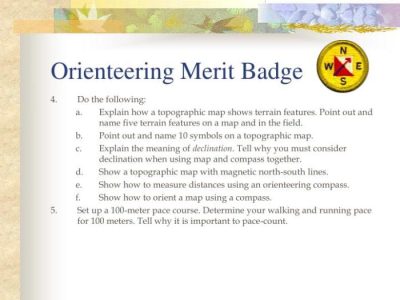Sustainable camping practices for scouts are essential for preserving the pristine beauty of the wilderness and ensuring its availability for generations to come. Adhering to the principles of Leave No Trace, scouts can minimize their impact on the environment while enjoying the great outdoors.
From conserving water and managing waste to selecting campsites wisely, sustainable camping practices empower scouts to become responsible stewards of the natural world.
Introduction to Sustainable Camping Practices
Sustainable camping is a crucial aspect of scouting, as it teaches young people the importance of preserving the environment while enjoying the outdoors. By adhering to the principles of Leave No Trace, scouts can minimize their impact on natural ecosystems and ensure that future generations can also experience the beauty of nature.
Leave No Trace is a set of seven principles that guide responsible outdoor recreation. These principles include planning ahead and preparing, traveling and camping on durable surfaces, disposing of waste properly, leaving what you find, minimizing campfire impacts, respecting wildlife, and being considerate of other visitors.
Planning Ahead and Preparing
Before embarking on a camping trip, it is essential to plan ahead and prepare. This includes researching the area, obtaining necessary permits, and packing essential supplies. Proper planning helps minimize the impact on the environment and ensures a safe and enjoyable experience.
Water Conservation

Preserving water is crucial for sustainable camping. Follow these tips to minimize water usage:
Using Biodegradable Soap and Washing Dishes
Use biodegradable soap specifically designed for camping. Avoid using regular dish soap, as it can harm aquatic life and contaminate water sources. Wash dishes at least 200 feet away from water bodies to prevent contamination.
Proper Disposal of Wastewater, Sustainable camping practices for scouts
Never dispose of wastewater directly into water sources. Instead, dig a shallow pit at least 100 feet from water sources and bury the wastewater. This allows the soil to filter and absorb the wastewater naturally.
Waste Management

Sustainable camping practices extend to waste management, where reducing, packing out, and properly disposing of waste are crucial. This not only preserves the environment but also enhances the camping experience.
To reduce waste, plan meals carefully to avoid excess food. Choose reusable containers, utensils, and water bottles instead of single-use items. Avoid over-packaging by bringing items in bulk or using biodegradable packaging.
Packing Out Trash
Packing out all trash is essential to prevent littering and protect wildlife. Designate a central location for trash storage and ensure it’s securely closed to prevent animals from accessing it. When leaving the campsite, pack out all trash, including food scraps, wrappers, and any other waste.
Recycling
If recycling options are available at the campsite, take advantage of them. Sort recyclable materials like plastic bottles, aluminum cans, and paper products into designated bins. By recycling, you contribute to reducing waste and conserving resources.
Human Waste Disposal
Proper disposal of human waste is vital to maintain hygiene and prevent environmental contamination. Use designated toilets or latrines provided at the campsite. If these are not available, dig a shallow hole (6-8 inches deep) at least 200 feet away from water sources and trails.
Bury the waste securely and cover it with soil.
Energy Conservation

Conserving energy while camping is crucial for minimizing environmental impact and ensuring a sustainable outdoor experience. Simple practices can significantly reduce energy consumption, making camping more eco-friendly.
One effective way to conserve energy is to use LED lighting. LED bulbs are highly efficient and consume less power than traditional incandescent bulbs. They also last longer, reducing the need for frequent replacements.
Solar Panels and Renewable Energy Sources
For extended camping trips or areas with limited access to electricity, consider using solar panels. Solar panels convert sunlight into electricity, providing a clean and renewable energy source. They can power devices, charge batteries, and even light up campsites.
Other renewable energy sources, such as wind turbines and portable generators, can also be used to generate electricity while camping. These devices harness natural resources to provide sustainable power options.
Battery Disposal
Properly disposing of batteries is essential to prevent environmental pollution. Batteries contain harmful chemicals that can leach into the soil and water if not disposed of correctly. Recycle batteries at designated collection points or follow local regulations for safe disposal.
Site Selection and Impact Minimization

Choosing the right campsite is crucial for minimizing environmental impact. By selecting a site with minimal vegetation and wildlife, campers can avoid disturbing these delicate ecosystems.
To ensure minimal disturbance, avoid camping in areas with dense vegetation, near water sources, or in wildlife habitats. If possible, choose previously established campsites to avoid creating new trails and damaging vegetation.
Wildlife and Vegetation Protection
- Avoid disturbing wildlife by keeping a respectful distance and avoiding feeding or approaching animals.
- Protect vegetation by staying on designated trails and avoiding trampling on plants.
Restoring the Campsite
Upon leaving a campsite, it’s essential to restore it to its natural state. This includes:
- Removing all trash and food scraps.
- Extinguishing all campfires thoroughly.
- Dispersing any remaining debris.
Education and Outreach
Inculcating sustainable camping practices among scouts is crucial for fostering environmental stewardship and preserving natural resources. By educating scouts about Leave No Trace principles and other environmental ethics, we empower them to become responsible campers who minimize their impact on the environment.
Teaching scouts about Leave No Trace can be done through interactive activities, games, and demonstrations. For instance, a “pack it in, pack it out” scavenger hunt can reinforce the importance of proper waste disposal, while a “nature scavenger hunt” can help scouts identify and appreciate the diverse flora and fauna in their surroundings.
Role of Scouts in Promoting Sustainable Camping
As role models in their communities, scouts play a vital role in promoting sustainable camping practices. By demonstrating responsible camping techniques, they inspire others to adopt similar behaviors. Scouts can also participate in community clean-ups and educational campaigns to raise awareness about environmental conservation.
Closing Notes: Sustainable Camping Practices For Scouts
By embracing sustainable camping practices, scouts not only enhance their outdoor experiences but also contribute to the conservation of delicate ecosystems. As advocates for environmental protection, scouts play a vital role in safeguarding the wilderness for future generations to cherish.
Answers to Common Questions
Why is sustainable camping important for scouts?
Sustainable camping practices help scouts minimize their impact on the environment, preserving the wilderness for future generations.
What are the key principles of Leave No Trace?
Leave No Trace principles guide campers to minimize their impact on the environment, including packing out all trash, respecting wildlife, and avoiding disturbing vegetation.
How can scouts conserve water while camping?
Scouts can conserve water by using biodegradable soap, washing dishes away from water sources, and properly disposing of wastewater.
What are some tips for reducing waste while camping?
Scouts can reduce waste by packing out all trash, recycling, and composting food scraps.
How can scouts choose a campsite with minimal environmental impact?
Scouts should choose campsites in durable areas, avoid disturbing wildlife, and minimize vegetation disturbance.





